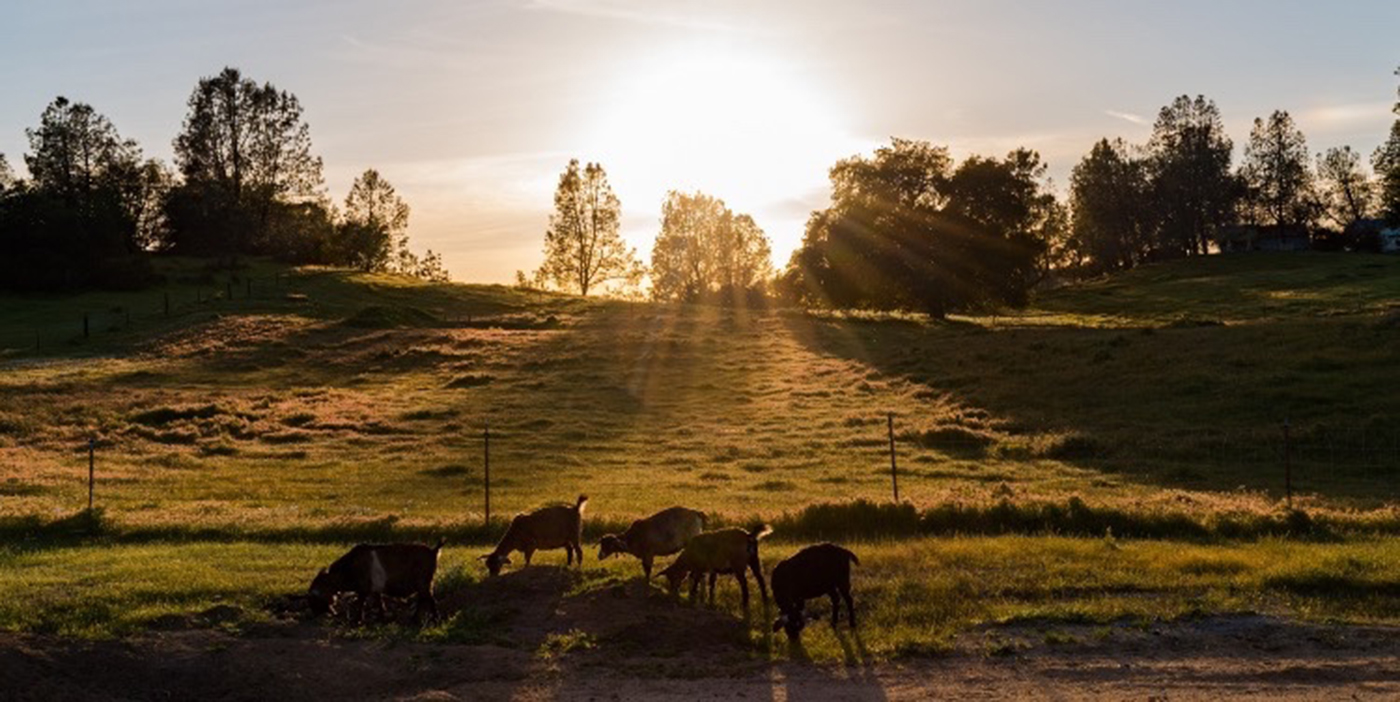— CONSUMERISM & CLIMATE CHANGE —


Ryan Alaniz
— curator —
Ryan Alaniz is an Associate Professor of Sociology at California Polytechnic State University, San Luis Obispo. His research includes post-disaster resettlement, community building, drought, and simple living movement.
Recognizing Our Responsibility As Consumers
How many earths would we need to provide everyone on the planet the same lifestyle that U.S. middle-class citizen currently enjoy? The estimates range from three to six and a half. Since colonizing Mars is still far in the future, we in the Global North must face the clear fact that our way of life is absolutely unsustainable.
Yet, this recognition still seems to evade us. Of course, there are small efforts happening on the coasts such as banning straws and plastic bags, but the fundamental issue—our culture of consumerism—is little affected.
Many have argued that individual acts of change are both too little and too late to address the looming climate crisis. These critics point to legislation to increase regulations on corporate pollution standards, policies to support new technologies, and governmental investment in green energy. The most radical call for the overthrow of capitalism to address the problem.
While these points have value, drawing on the Gandhian tradition of Ahimsa (non-violence) and Satyagraha (force generated through truth), the new simple living movement provides individuals a moral foundation to act.
For example, it would be disingenuous of me to complain about the misuse by corporate agriculture, when I myself wash my car every week and have a beautiful green lawn. As Gandhi famously elucidated, “We must be the change we wish to see in the world.” This is especially true if we want to call on others to change.
The many strategies being implemented by folks to lighten their ecological footprint has been referred to as the simple living movement. Unlike the climate justice movement, this collection of strange bedfellows–from vegetarians to homesteaders and beachcombers collecting trash to no buy Black Friday–do not necessarily claim a common vision to what the world will look like. However, they do share a concern as to how individual and household actions negatively impact the planet.
The climate crisis is and can feel overwhelming, leaving individuals to feel hopeless (see Climate Change Emotions). Although not the final solution, simple living properties empowers citizens, especially engaged students, the opportunity to DO SOMETHING today to address the culture of consumerism. From this foundation of action citizens are further empowered to do more, call upon others to act, and provided the moral impetus to fight for legislative and policy changes.
This module provides an introductory survey of the various strategies individuals and households can implement to address the climate crisis on a very basic level. It is not a complete list; indeed, if you have other examples, please share them. However, it is useful for all of us to recognize the concrete actions we can take every day. The goal, of course, is to entice readers to take further action on the national and international scale.
Each strategy will have links to educational websites, videos, readings, and activities.
My Story:
The past is prologue. I grew up on a farm on the Central Coast of California with rows of vegetables and an infinite skyline as companions. Over time my path led me to volunteer at an orphanage in Honduras where I witnessed deep poverty and lived very simply. After graduate school and a new professorship back on the Central Coast, I was fortunate to purchase a ten-acre parcel. Our home is an experiment; through research and trial and error we are learning to live as simply as possible with the resources available to us on our land and in our community. We have four goats, 40 chickens, an apiary with nineteen hives, a half-acre garden, and an orchard. Feel free to reach out or visit (www.tierradelcielofarm.com).
Updated — July 8, 2020
MENU OF RESOURCES
FEATURED MEDIA RESOURCES
Published by Ryan Alaniz, on May 29, 2019
There is growing public recognition that our consumerist lifestyle in the Global North is a major and ongoing cause of climate change.
Yet, for most citizens the buying and throwing away of an ever-increasing amount of goods continues unabated.
Others, however, have found innovative ways to counteract this trend through their lifestyle choices.
The burgeoning counter-culture such as the degrowth movement, minimalism (tiny homes, zero waste), locavorism (eating locally grown foods, urban gardens, homesteading), and simplifying (KonMarie Method, reducing one’s carbon footprint, mindfulness), are providing individuals practical opportunities to address climate change in the immediate and question the underlying promises of capitalism—more stuff means more happiness.
This presentation provides answers to the overwhelming question: what can I do today to address the climate crisis?
